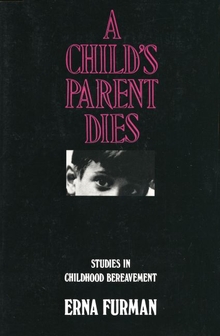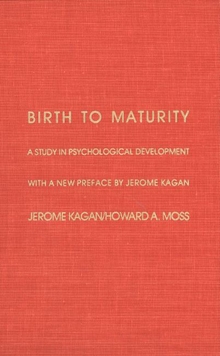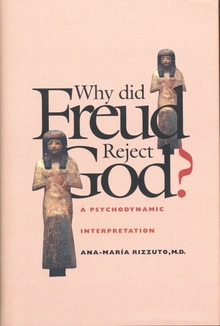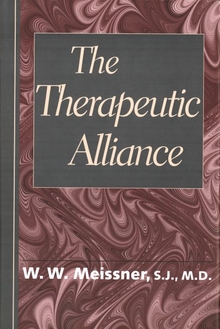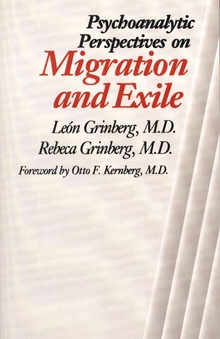A Child's Parent Dies
WARNING
You are viewing an older version of the Yalebooks website. Please visit out new website with more updated information and a better user experience: https://www.yalebooks.com
Studies in Childhood Bereavement
Erna Furman
This study of twenty-three children who suffered the death of a parent during childhood seeks to understand the psychological impact of bereavement on the young and to offer concrete suggestions for helping children cope with their loss.
"The use of developmental levels and the combining of emotional and cognitive experiences are comprehensive and make the book's content logical, memorable, and usable for therapists of many persuasions. Object loss is given a good deal of recognition, and distinctions among the kinds of partial object loss are made. . . . A very good book for clinicians who are attempting to understand bereavement in childhood and to deal therpeutically with it."—American Journal of Psychiatry
"A veritable gold mine of material, conclusions, and therapeutic leads on a subject which is now top priority in not only medical but lay journals, namely, death and dying, and the grief reaction. . . . A unique contribution, which will stand out in the psychoanalytic and psychiatric literature for a long time. . . . Should be on the shelf of everyone who works in this field, be he an analyst, a psychiatrist, a psychologist, a social worker, or just an ordinary medic."—New York State Journal of Medicine
"This extraordinary book should be required reading for every psychoanalyst and for all whose professional work brings them into contact with children whose parents may die—that is to say, with children of any age."—The Psychoanalytic Quarterly
"This is a book for professionals who deal with [bereaved] children, but is also a book which survivors/parents might find helpful. It is, in general, a good book: thoughtful, knowledgeable, and humble in the face of so serious and complex a subject about which too little is known."—Contemporary Psychology
"A noteworthy accomplishment. Its importance is in its offering of detailed clinical material from which the theoretical formulations, with which the reader may or may not agree, are drawn and in Mrs. Furman's refusal to dilute the complexities and diversities involved in predicting or modifying children's mourning patterns. . . . This book is a solid contribution to the understanding of childhood mourning, and it will be useful to workers who know there are no easy answers. It will be especially useful to readers who already have a background in psychoanalytic thinking."—Journal of Nervous and Mental Disease
"Furman, in A Child's Parent Dies, focuses on a single discipline, psychoanalysis, in her study of the bereaved child. Such a singular concentration is productive of a well-ordered, cogent work. . . . Furman and her associates have offered an outstanding introduction to understanding childhood bereavement."—Journal of American Medical Association
"A Child's Parent Dies, claimed by Anna Freud to be the first comprehensive study done on the subject, is to be welcomed as an important contribution to our knowledge in the field of child psychology. Many troubled children will benefit from the new insights it contains. It is directed towards all disciplines engaged in the field of child development but has an obvious and special relevance for parents."—The Education Times
"It is difficult to overestimate the potential contribution of A Child Parent's Dies: the combination of scholarship, sensitivity, and discipline would make it unique among psychoanalytic documents. Beyond this, however, Furman's work should become an established resource for future generations of clinicians and investigators who seek a bridge between hypotheses and their applications."—Avery D. Weisman
"Furman's theoretical formulations and case reports written by several of the analysts. It's scholarly, insightful, sometimes speculative, lucid, and fairly free of jargon. Anna Freud's foreword describes it as 'a remarkable publication which merits a prominent place among the psychoanalytic investigations of childhood and its problems,' which is not an overstatement."—Library Journal
"The book includes a most complete and comprehensive review of the psychoanalytic literature available on this subject, and it would be invaluable to the child psychiatrist, child analyst or mental health professional working with children."—AAAS Science Books
"A comprehensive text on the subject of the death of a parent, with an exhaustive and thorough review of the literature on the subject. . . . Should be included in every psychiatrist's library."—Journal of the American Academy of Child Psychiatry
"A Child's Parent Dies is a major contribution to the psychoanalytic study of children's development and to the understanding of the processes of mourning. It merits, however, a wider readership than such a description implies. It is clearly written, with a minimum use of technical terms; it is infused with a deep sympathy for the misery and anger of the child patients, and the authors emerge as good and courageous men and women, willing to bear the pain of living with and sharing the children's misery, so as to assist them. The case-histories are clear and vivid. . . . Anybody who has to cope with children who have lost a parent or with a surviving widow or widower will find help and guidance."—Times Literary Supplement
"This monograph studies the psychological impact of the death of a parent on a child and offers concrete suggestions to help such children to cope up with their loss. The scope, depth, and thoroughness of the study are impressive. In an extensive and painstaking discussion of the relevant literature, the author relates her own work to other studies of mourning. A comprehensive discussion of the literature realtes this study to previous findings. The combination of case reports and theoretical formulations brings the reader a fuller understanding of the experience of bereavement in childhood and the ways in which the adults can help."—Medical Book News
"Because this book draws on the experience of numerous seasoned therpists, it is rich in case history materials, astute observations about the actual conditions of childhood bereavement, and suggested strategies for therapeutic intervention."—Leo Schneiderman, The Psychoanalytic Review
"A Child's Parent Dies is a remarkable study which merits a prominent place among the psychoanalytic investigations of childhood and its problems. . . . The scope, depth and thoroughness of the study is impressive; so is the backing up of every piece of reasoning by the display of clinical material, taken from one source exclusively, namely from child-analytic treatments carried over a number of years."—Claude M. Ury, Journal of Personality Assessment
Winner of the 1978 Heinz Hartmann Award
ISBN: 9780300026450
Publication Date: September 10, 1981
Publication Date: September 10, 1981
316 pages, x

